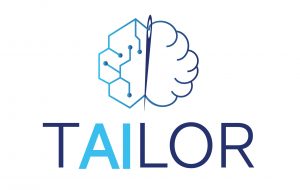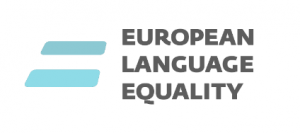Projects & Collaborations
CLAIRE and its members are involved in various collaborations and the following projects funded by the European Commission and national agencies:
On May 21, 2021, BDVA, CLAIRE, ELLIS, EurAI and euRobotics founded Adra (AI, Data and Robotics Association, asbl) joining forces and integrating a wide range of stakeholders into the activities of the Partnership. Adra is the private side of the AI, Data and Robotics Partnership in Horizon Europe. Adra and the partnership pursue a common and shared vision to boost European competitiveness, societal wellbeing and environmental aspects to lead the world in researching, developing and deploying value-driven trustworthy AI, Data and Robotics based on fundamental European rights, principles and values.
Adra is managed by its “Founding Board” appointed by the Founding members for an initial period from the foundation stage to the election of a first Board of Directors elected by the General Assembly in 2022. The Founding Board is composed of 18 directors covering a wide rage of disciplines, including Emanuela Girardi, CLAIRE Member of Taskforce Industry and Leader of the Informal Advisory Group Industry and Morten Irgens, CLAIRE Vice-Chair of the Board of Directors and Director of Innovation, as Vice President of Adra for AI and research.
The Association for the Understanding of Artificial Intelligence is a non-profit organisation dedicated to connecting the AI community to the public by providing free, high-quality information through AIhub.org.
AIhub is supported by many leading scientific organizations in AI, namely AAAI, NeurIPS, ICML, AIJ/IJCAI, ACM SIGAI, CLAIRE and RoboCup.
CLAIRE’s collaboration with AIhub brings together two European AI initiatives, working closely together on the preparation of the AI for Good series, a series of contributions from the AI community dedicated to further develop the dual focus on AI for Good and AI for All in connection with the United Nations Sustainable Development Goals.
The AI for Good series will be published by AIhub with the aim of connecting the AI community to the public, by providing free, high-quality information on AI research and innovation. Each month, the series will showcase specific lines of AI research related to one of the UN Sustainable Development Goals. Under each month’s topic, there will be a selection of posts, ranging from interviews, research summaries, news and updates on collaborations, to videos and other useful resources. The first topic has been set for December 2020, with a spotlight on “good health and well-being”, UN Sustainable Development Goal number 3. This subject is particularly pressing at present, considering the COVID-19 pandemic. Nonetheless, there are numerous other examples of successful and transformative use of AI in healthcare, which will be presented in the AI for Good series.
CONVOLVE (https://convolve.eu/) enforces the EU’s position in the design and development of smart edge-processors, such that it can become a leader in the global edge processing market.
With the rise of deep learning (DL), our world welcomes Artificial Intelligence (AI) in every edge device, creating an urgent need for edge-AI processing hardware. Unlike existing solutions, this hardware needs to support high throughput, reliable, and secure AI processing at ultra-low power (ULP), with a very short time to market.
With its strong legacy in edge solutions and open processing platforms, the EU is ideally positioned to become the leader in this edge-AI market. However, certain demands need to be met to position the EU as a leader in these technologies: Edge processors need to become 100x more energy efficient; Their complexity demands automated design with 10x design time reduction; They must be secure and reliable to get accepted; Finally, they should be flexible and powerful to support the DL domain. CONVOLVE addresses these roadblocks and thereby enables EU leadership in Edge-AI.
The CONVOLVE consortium includes some of Europe’s strongest research groups and industries, covering the whole design stack and value chain. In a community effort, we will demonstrate Edge-AI computing in real-life vision and audio domains. By combining innovative ULP and fast design solutions, CONVOLVE will, for the first time, enable reliable, smart, and energy-efficient edge-AI devices at a rapid time-to-market and low cost, and as such open the road for EU leadership in edge-processing.
CLAIRE’s main role is as communication and dissemination expert in WP8, developing communication and dissemination plan and materials related to these activities. (Promotion of community engagement and connectivity. Leveraging existing CLAIRE community, network, and contacts.)
The Coordination and Support Action (CSA) VISION coordinates the four new AI Networks of Excellence (NoEs) selected by the European Commission in the framework of the ICT-48 call “Towards a vibrant European network of AI excellence centres”. The aim of these NoEs AI4Media, ELISE, Humane AI Network, TAILOR is to foster the collaboration between the best research teams in Europe and addressing the major scientific and technological challenges in Artificial Intelligence more efficiently. Existing research capacities will be expanded and concentrated through closer networks in the form of European AI centers of excellence to achieve a critical mass that will allow Europe to be competitive on an international level.
The project is fundamentally based on the vision and objectives of CLAIRE and is therefore led by Prof. Holger Hoos from Leiden University (Netherlands), who is also Chairman of the Board of CLAIRE AISBL.
Within the 9 VISION consortium partners there are currently 31 CLAIRE Network members. VISION builds on CLAIRE and will leverage the CLAIRE community and network. VISION will reinforce and build on Europe’s assets in AI, including its world-class community of researchers, and thus enable Europe to stay at the forefront of AI developments, by strongly building on the success of the CLAIRE community and network, that brings together thousands of AI researchers and already helps to shape, consolidate and unify the AI research community across Europe.
VISION and CLAIRE, along with HumanE AI Net and TAILOR, are planning a series of joint so-called Theme Development Workshops (TDW) to bring together key players from specific industry sectors with key AI researchers, as well as additional stakeholders. The objectives are to jointly identify the strategic AI research areas and challenges in the scope of the workshop and to set up collaborative structures for further addressing them beyond the event.
.
.
The TAILOR project was selected by the European Commission in the ICT-48-2020 call to form a strong research network of academic institutions and industry partners to develop the scientific basis for trustworthy artificial intelligence (Trustworthy AI). In particular, the dimensions of explainability, safety, fairness, liability/responsibility and reproducibility, data protection and privacy as well as sustainability will be appropriately addressed by using approaches from the field of machine learning, optimization methods and approaches of reasoning and combining or integrating them in a meaningful way. The consortium is led by Dr. Fredrik Heintz, who is a researcher at Linköping University in Sweden and is also President of the Swedish AI Society (SAIS) and member of the Extended Core Team of CLAIRE.
Within the 55 TAILOR consortium partners there are currently 88 CLAIRE Network members. TAILOR and CLAIRE, along with HumanE AI Net and VISION, are planning a series of joint so-called Theme Development Workshops (TDW) to bring together key players from specific industry sectors with key AI researchers, as well as additional stakeholders. The objectives are to jointly identify the strategic AI research areas and challenges in the scope of the workshop and to set up collaborative structures for further addressing them beyond the event.
.
.
.
The HumanE AI Net community seeks to create the foundations for AI systems that empower people and society.
CLAIRE collaborates with HumanE AI Net and supports their goal of harnessing the emergence of enabling technologies for human-level interaction to empower individuals and society, by providing new abilities to perceive and understand complex phenomena, to individually and collectively solve problems, and to empower individuals with new abilities for creativity and experience.
HumanE AI Net is well aligned with and supports the overall European AI initiative CLAIRE. Working together, these two initiatives, jointly with other AI activities, the community at large, the commission and its member states, are perfectly suited to significantly strengthen European AI to the degree necessary to become a dominant player in the global AI landscape, by mobilizing the critical mass and large-scale engagement in AI across Europe.
CLAIRE and HumanE AI Net share a commitment to leveraging all areas of AI, to strongly connect with disciplines beyond AI, and to ensure a European focus on human-centred AI, i.e., on AI that augments, rather than replaces, human intelligence.
See the full HumaneAI Vision here.
CLAIRE has played an important role in establishing the current HumanE AI Net consortium, and within the 53 HumanE AI Net consortium partners there are currently 81 CLAIRE Network members. HumanE AI Net will leverage the CLAIRE network for interaction with AI experts not represented in the ICT-48 networks in areas where such expertise might be beneficial to HumanE AI Net, via participation in regular CLAIRE events and use of the CLAIRE communications platform.
HumanE AI Net and CLAIRE, along with TAILOR and VISION, are planning a series of joint so-called Theme Development Workshops (TDW) to bring together key players from specific industry sectors with key AI researchers, as well as additional stakeholders. The objectives are to jointly identify the strategic AI research areas and challenges in the scope of the workshop and to set up collaborative structures for further addressing them beyond the event.
.
 AI4Media is a 4-year-long project funded under the European Union’s Horizon 2020 research and innovation programme, the project aspires to become a Centre of Excellence engaging a wide network of researchers across Europe and beyond, focusing on delivering the next generation of core AI advances and training to serve the Media sector, while ensuring that the European values of ethical and trustworthy AI are embedded in future AI deployments. The ICT-48 project is composed by 30 leading partners in the areas of AI and media (9 Universities, 9 Research Centres, 12 industrial organisations) and a large pool of associate members, that will establish the networking infrastructure to bring together the currently fragmented European AI landscape in the field of media, and foster deeper and long-running interactions between academia and industry.
AI4Media is a 4-year-long project funded under the European Union’s Horizon 2020 research and innovation programme, the project aspires to become a Centre of Excellence engaging a wide network of researchers across Europe and beyond, focusing on delivering the next generation of core AI advances and training to serve the Media sector, while ensuring that the European values of ethical and trustworthy AI are embedded in future AI deployments. The ICT-48 project is composed by 30 leading partners in the areas of AI and media (9 Universities, 9 Research Centres, 12 industrial organisations) and a large pool of associate members, that will establish the networking infrastructure to bring together the currently fragmented European AI landscape in the field of media, and foster deeper and long-running interactions between academia and industry.
.
.
The European Learning and Intelligent Systems Excellence (ELISE) project aims to build and execute a European Strategic Research Agenda in AI. The project is supported by H2020-ICT-48 and 22 partners and will run for 3 years. ELISE seeks to establish a network of excellent researchers and laboratories as well as an attractive training network for junior scientists and to involve industry in academic research. Therefore, a sustainable ecosystem of machine learning stakeholders will be set up and concrete, research-based steps to obtain ethical, robust and trustworthy AI / ML methods and practices will be implemented.
Within the 23 ELISE consortium partners there are currently 12 CLAIRE Network members.
.
.
European Language Equality (ELE) is an EU project that started in January 2021 and ended in June 2022. Its goal was the development of the Strategic Research, Innovation and Implementation Agenda and a Roadmap for achieving full Digital Language Equality in Europe by 2030. The consortium consisted of 53 partners covering all European countries and all major initiatives, including CLAIRE.
ELE has the potential to influence the European LT landscape for the next 10-15 years by addressing and solving the crucial topic of digital language equality. One of the objectives of ELE is to create more public visibility – for the topic, for the consortium, for the LT community and to strengthen and reinforce the European Language Grid as well as the relationship of the LT field with the European AI community. To realise this, many consultation events, roundtables, stakeholder meetings were held in close collaboration with its sister project European Language Grid (ELG). Therefore, an overlap between ELE and ELG consortium, ELG NCCs and META-NET members is intended to firmly establish LT and language-centric AI in Horizon Europe and the Digital Europe Programme. ELE and ELG ended with the joint META-FORUM in June 2022. The report of CLAIRE’s community consultation and survey can be found here.
.








